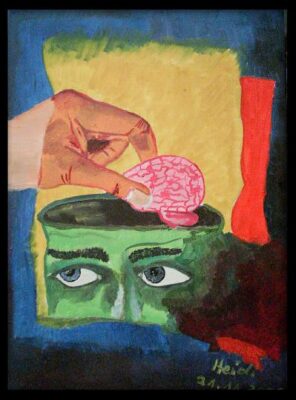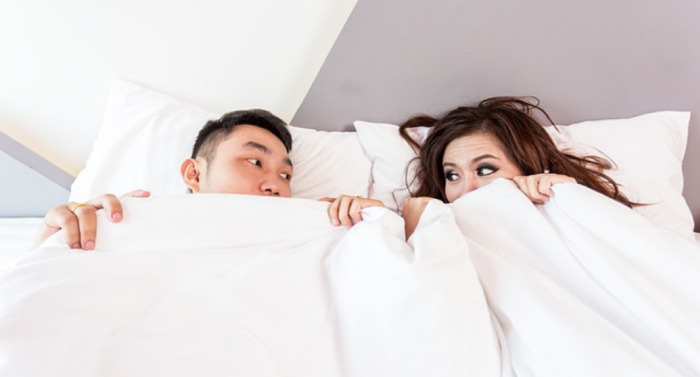
Our world has changed almost overnight. Those of us on a spiritual path have been waiting for a game changer, but we did not see THIS coming. So many people were worried that human activities are endangering life on the planet. And then the tiniest of life forms throws a wrench in the gears of our out-of-control consumer economy that brings it to a screeching halt.
Ironic, isn’t it? What a poignant reminder of our place in the biosphere. We are a part of an intricate web of life, even when we live in big cities with all the technical contraptions that seem to separate us from nature.
Humans have co-evolved with viruses since the dawn of our species. Viruses are the fastest life forms to mutate and evolve. Our immune system had to keep up with those mutations; otherwise we would have gone extinct very quickly. Rather than looking at our relationship with viruses as a war, we can regard it as a dance of mutual evolution.
The cheetah would not be the fastest animal on land without the need to run down the gazelle. The gazelle would not be such a graceful sprinter if it did not have to escape from the cheetah. Without carnivores, the herbivores would have multiplied unchecked, until they consumed every plant on the planet and become extinct through starvation. Life on Earth requires balance.
Over the next few months, it is probable that every one of us will be exposed to the Corona virus at one point or another. Our immune system is brilliant and adaptable. Nevertheless, many are dying, while others have very mild or no symptoms at all. Who lives and who dies is not a question of luck.
It is a question of soul intent.
For many souls on the planet right now, the New Energy is too much to accommodate. The change is too big. Some have had enough of it already and prefer to watch from the comfort of the non-physical realm. Some can do their work better from there. Others are complete now with their experience on Earth and their contribution to her ascension. A number of light workers are leaving to assist departed souls in their exit from the near-earth realms. They act like traffic directors in the evacuation of a large building. Many of us are staying to be the grounding rods for the New Energy in the physical Earth. Our dreams of the world-to-come require our physical presence. This happens to be the most demanding, but also the most exciting path.
None of those choices are better or worse than others. It is simply a question of our soul’s intent. The best we can do at this time is to get very quiet and listen to the still voice inside. What is my calling? What is my soul’s specialty?
The voice of Soul is always joyful and fearless. It does not judge right or wrong. When we are clear in our alignment with Soul, we can face our path with confidence. Our intuition will guide us every step of the way, moment by moment. We will be in the right place at the right time, and we will know what to do when we have to do it.
Fear and grief are natural responses of the human mind. Surf their waves and let them pass. I recommend getting out in nature, be it a park, a garden, or up a trail. Feel the joy of Earth at this time. As traffic is slowing, planes and tankers are sitting still, factories are shutting down, Mother Earth is taking a deep breath. Spring is here, and new life is growing everywhere in the Northern hemisphere.
“What seems like the end of the world to the caterpillar, is the beginning of life for the butterfly.” –Richard Bach
We don’t need to know how to go through this global transformation anymore than a caterpillar needs to think about becoming a butterfly. Our Inner Wisdom knows. The more we trust the process, the easier it gets. So take a deep breath – frequently! – Relax and allow it to take place naturally. In the Big Picture, all is well!
About the Author, Ascension Lifestyle Contributor:
Shana Dieterle, PT, CST-D, is a licensed physical therapist and diplomate certified craniosacral therapist with nearly 40 years of experience in the fields of healthcare, wellness and spiritual growth.
She is available for phone consultations to assist you in finding what is right with you.
Feel free to call at reasonable hours!
(406) 396 5788
shana@shanasheartofhealing.com






















 She writes, “The mind analyzes — the heart synthesizes. The turning point is where the heart is awakening. Historically speaking, we are at this juncture. America’s motto, inscribed on the banner in the beak of the eagle of the Great Seal [of the United States], reminds us that America was founded on the principle of ‘E Pluribus Unum’ — ‘Out of the Many, One.'”
She writes, “The mind analyzes — the heart synthesizes. The turning point is where the heart is awakening. Historically speaking, we are at this juncture. America’s motto, inscribed on the banner in the beak of the eagle of the Great Seal [of the United States], reminds us that America was founded on the principle of ‘E Pluribus Unum’ — ‘Out of the Many, One.'”





